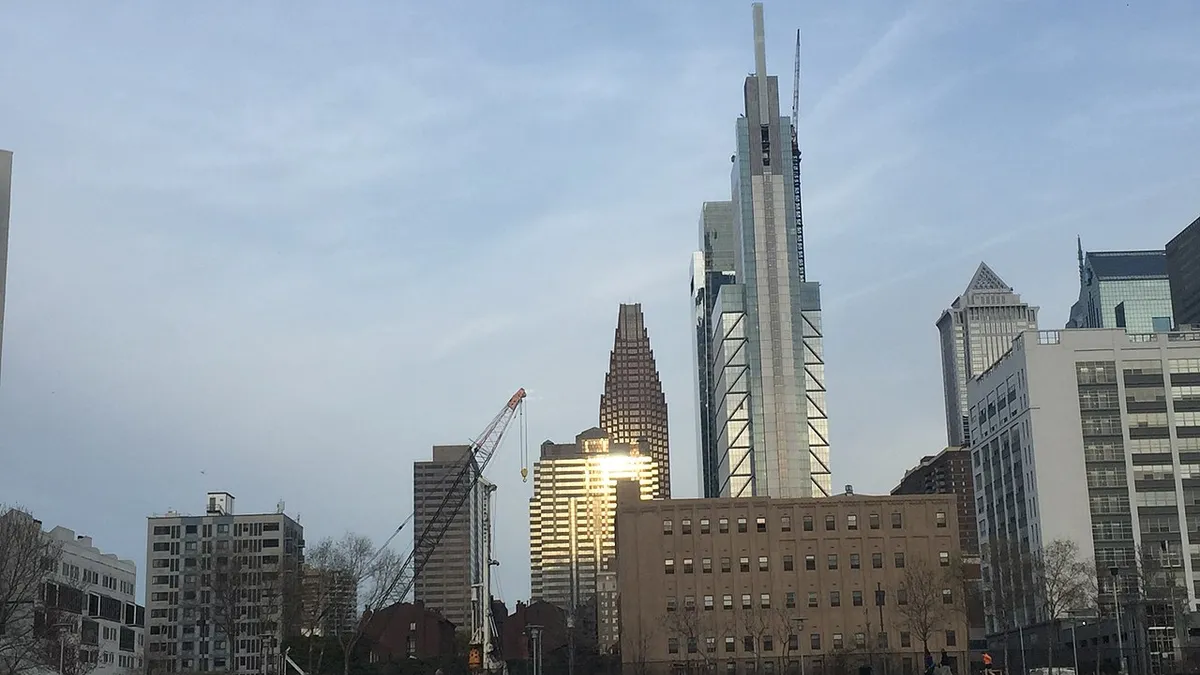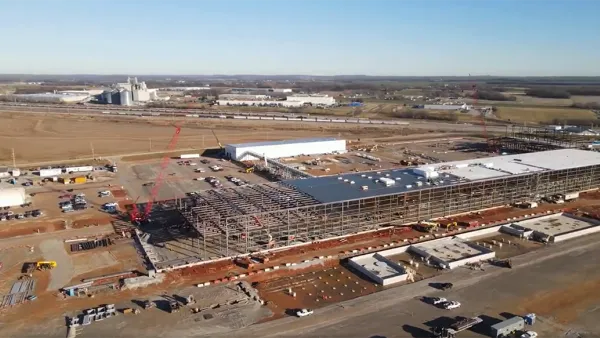Dive Brief:
- A unit of developer Liberty Property Trust is suing L.F. Driscoll Co., the general contractor for the $1.5 billion Comcast Technology Center in Philadelphia, for $103.4 million in cost overruns and schedule setbacks that delayed the building's hotel opening by two years, The Philadelphia Inquirer reported. Driscoll, which was purchased by the Structure Tone Organization (STO) in 2009, has filed a $103 million countersuit against the developer, now a division of real estate investment trust company Prologis Inc., according to American City Business Journals.
- Liberty, which had partnered with Driscoll on previous high-rise projects in Philadelphia, maintains that there was a negative shift in the quality of management at Driscoll after its acquisition by STO, evidenced by $67 million of cost overruns — including $21.5 million related to the Four Seasons Hotel section of the building — and late submission of spending reports, which were a condition of the project's $715 million guaranteed maximum price construction contract. Liberty said it has paid Comcast subcontractors more than $50 million and that there are $27 million in lien claims.
- Driscoll claims in its lawsuit that the design was not finalized when it started construction on the tower, and that was the source of the project's cost overruns and delays.
Dive Insight:
At a height of 1,120 feet, the 1.3 million-square-foot Comcast skyscraper is the tallest building in Philadelphia and the tenth-tallest in North America. Aside from the 217-room Four Seasons, the majority of the building is comprised of office space.
In February 2019, news broke that several subcontractors on the project had filed mechanic's liens against the development in 2017 and 2018. The largest liens were registered by SteelFab Inc. of Alabama in the amount of $11.8 million and electrical contractor Ray Angelini Inc, for $1.4 million. At the time, Comcast employees were already moving into the building.
The rules regarding mechanic's liens vary from state to state, but in general, an owner cannot sell or refinance a property if that property has unresolved mechanic's liens filed against it. An option to get around that, however, is to "bond off" a lien, which is when the owner or contractor provides a bond that removes the lien from the property.
Depending on the circumstances, mechanic's liens can really bog down a project, not only legally but from a scheduling perspective. If a contractor has not been paid and still has unfinished work ahead, the contractor may be able to stop work altogether until the payment terms of its contract have been met. Then, not only is the contractor entitled to past due amounts but to the costs associated with demobilization and remobilization.
Another protection general contractors have is that they can ask for proof from the owner that there is financing in place to fund for the project if the owner falls behind in payments. The general contractor has the right to stop work under certain conditions if the owner does not provide that information in a timely manner.












